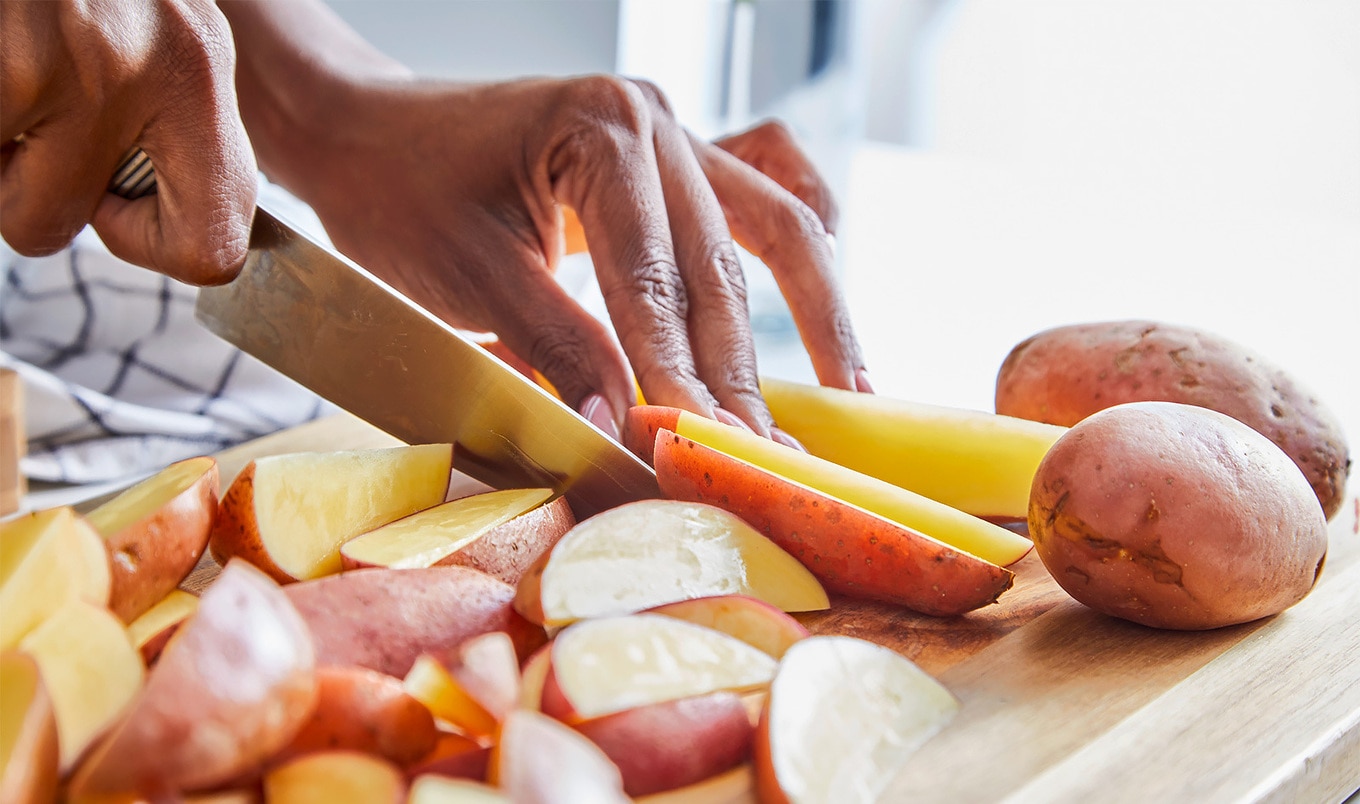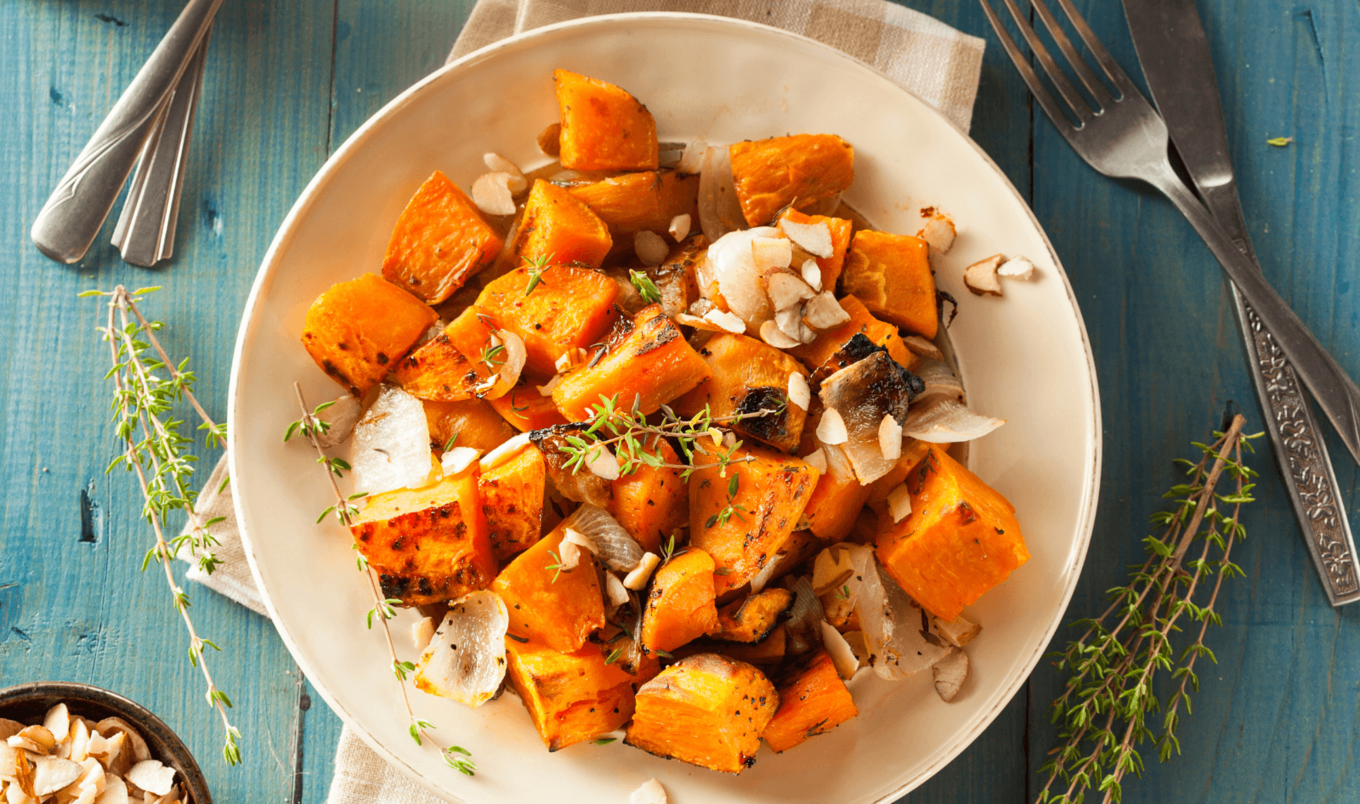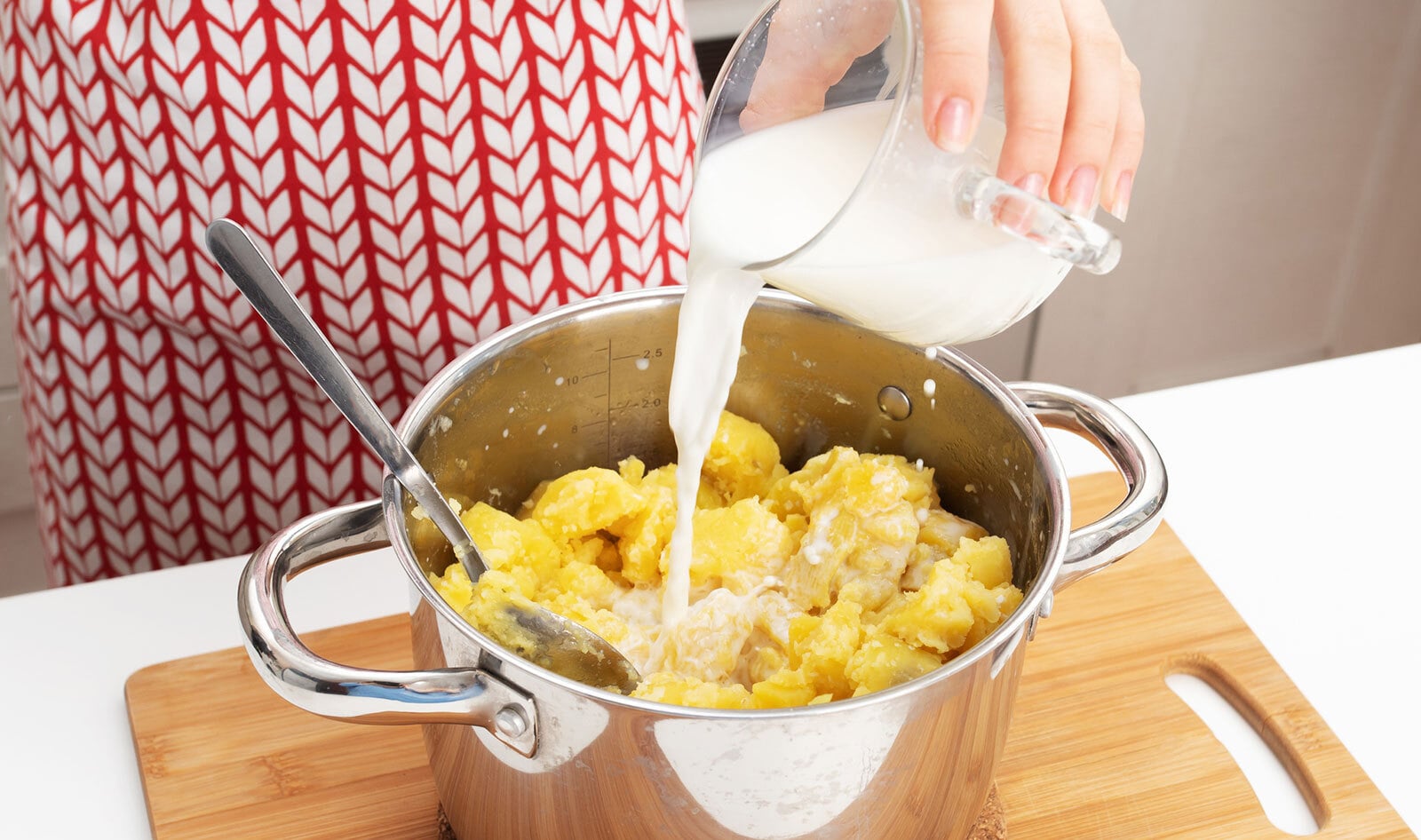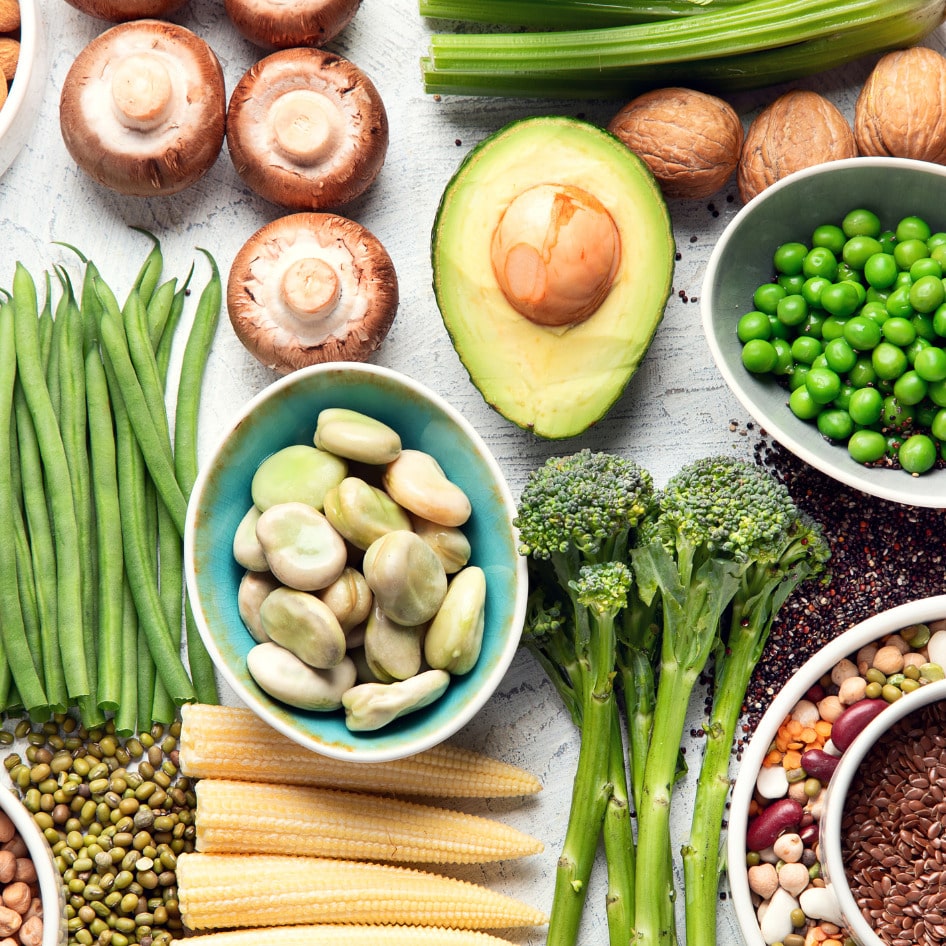With low-carbohydrate diets rising in popularity in recent years, potatoes are often overlooked in favor of other vegetables. Previous research has also indicated that potatoes may have detrimental effects on health, such as increasing the risk of developing type 2 diabetes.
However, new research published in the medical journal Diabetes Care shows that while potatoes may not have all the same benefits of some other vegetables—such as lowering risk of type 2 diabetes—the health issues associated with potatoes may actually be due to how people are preparing them and what they’re eating them with, such as adding butter and eating them alongside meat.
Conducted by researchers at Edith Cowan University (EDU), the study involved more than 54,000 people reporting their dietary intake for the long-term Danish Diet, Cancer and Health study. An analysis of this study, led by Dr. Nicola Bondonno from ECU’s Nutrition and Health Innovation Research Institute, found people who consumed the most vegetables were 21 percent less likely to develop type 2 diabetes than those who consumed the least amount of vegetables.

iStock
Notably, the study found that, while potatoes didn’t have the same impact on type 2 diabetes as other vegetables, they also didn’t have any negative effect. “In previous studies, potatoes have been positively linked to incidence of diabetes, regardless of how they’re prepared—but we found that’s not true,” EDU researcher Pratik Pokharel said in a statement. “In Denmark, people consume potatoes prepared in many different ways; in our study, we could distinguish between the different preparation methods.”
“When we separated boiled potatoes from mashed potatoes, fries or crisps, boiled potatoes were no longer associated with a higher risk of diabetes: they had a null effect,” Pokharel said.
Vegetables lower diabetes risk
The researcher pointed out that underlying dietary patterns were the key: French fries and mashed potatoes likely have an association with this health risk because they’re eaten with butter and cream.
“In our study, people who ate the most potatoes also consumed more butter, red meat, and soft drinks—foods known to increase your risk of type 2 diabetes,” Pokharel said.
The study’s findings indicate that vegetables could play a key role in reducing type 2 diabetes, as people who ate a lot of leafy greens and cruciferous vegetables such as spinach, lettuce, broccoli, and cauliflower had a significantly lower risk of developing the condition.
“The finding that vegetables lower diabetes risk is crucial for public health recommendations, and we shouldn’t ignore it,” Pokharel said. “Regarding potatoes, we can’t say they have a benefit in terms of type 2 diabetes, but they also aren’t bad if prepared in a healthy way.”

Canva
Pokharel said people should be advised to increase their vegetable intake—and they could include potatoes as long as they left out some of the unhealthy extras such as butter, cream, and oil. “But just take care how you prepare them: don’t eat fries, or mash with extras in it all the time,” he said. “Just boil them and eat them like other greens or other foods—and you don’t need to have it with red meat all the time.”
Are potatoes healthy?
This new study adds to a growing body of research on the health benefits of potatoes. A study published last month in peer-reviewed medical publication Journal of Medicinal Food had similar findings that potatoes do not increase type 2 diabetes risk and are packed with key nutrients and health benefits. This study has found that replacing higher calorie meat with potatoes and beans could promote weight loss.
“The key aspect of our study is that we did not reduce the portion size of meals but lowered their caloric content by including potatoes,” Candida Rebello, PhD, an assistant professor at Pennington Biomedical and co-investigator of the study, said in a statement. “Each participant’s meal was tailored to their personalized caloric needs, yet by replacing some meat content with potato, participants found themselves fuller, quicker, and often did not even finish their meal. In effect, you can lose weight with little effort.”

Canva
Another study published earlier this year found additional health benefits beyond weight loss and lowering diabetes risk. The study, published in the scientific journal Medicine & Science in Sports & Exercise, found that potato protein can be as effective as animal-derived milk in building muscle, noting that potato protein and animal milk protein share a very similar amino acid composition that both have a similar effect on muscle protein synthesis, or the body’s way of making amino acids into skeletal muscle protein.
“Muscle protein synthesis rates following the ingestion of 30 grams of potato protein do not differ from rates observed after ingesting an equivalent amount of milk protein,” the study concluded.
For the latest vegan news, read:
JUMP TO ... Latest News | Recipes | Guides | Health | Subscribe









